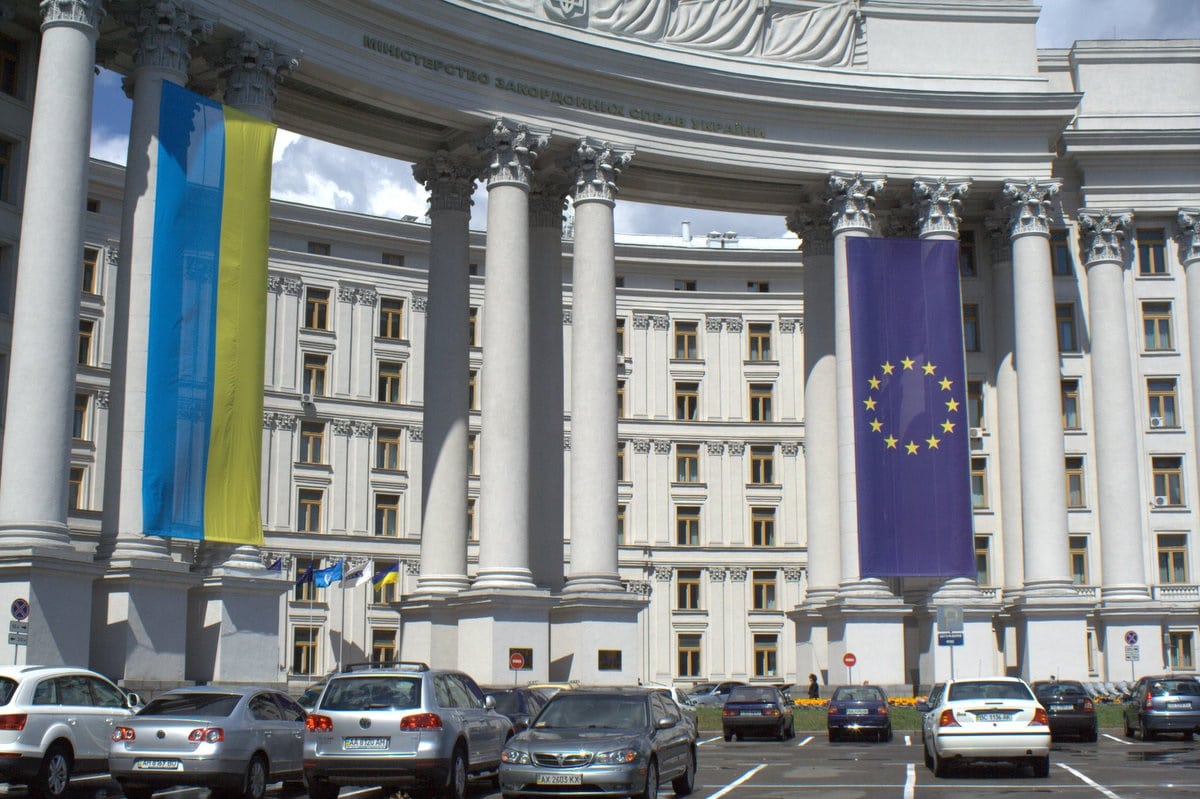For political parties in Georgia, Moldova and Ukraine, building an alliance with a Europarty offers political advantages at home and abroad.
Georgia, Moldova and Ukraine have been actively working on their relationship with the European Union. For these countries that are not yet EU members but make no secret of their European aspirations, it is especially important to seize the opportunity and enter into the European political space. A membership in Europarties in particular can contribute to this process.
On the eve of considering major items of the EU agenda of the working bodies and adopting resolutions, the most important preliminary discussions are held at the meetings of so-called ‘political families’. Traditionally, the most influential ‘political families’ in the EU are the European People’s Party (EPP), the Party of European Socialists (PES) and, to a lesser degree, the Alliance of Liberals and Democrats for Europe (ALDE).
By nature, these parties are unique supranational organisations uniting mainly European national parties that are close in values and ideology. Armed with dozens of heads of government, EU commissioners and hundreds of Members of European Parliament, the Europarties are turning into a hub for drafting decisions and building horizontal communication channels to pursue partisan interests. These interests sometimes affect the future of the European Union when it comes to providing neighbouring countries with special privileges, such as financial assistance, visa-free travel, free trade agreements, and, possibly, the status of an EU membership candidate.
Not all officials in neighbouring countries have a sufficient understanding of the intricacies of the sophisticated party structure of the EU. Therefore, the pace and prioritisation of cooperation with the Europarties often vary from country to country.
Georgia
The Europeanisation of Georgia, similar to other post-Soviet countries, is inextricably linked with internal transformations and external threats. The maturation of political parties took place against the backdrop of economic crises, the emergence of democratic institutions and a looming threat posed by Russia.
A dramatic turnaround towards the West occurred with the coming to power of Mikheil Saakashvili. Although Saakashvili has been outside of Georgia for a long time, his party, the United National Movement (UNM), is still a major political partner of the EPP. Even the absence of the status of a full-fledged member does not prevent the party leadership from regularly contacting the top politicians of the European Union and counting on their support in the most challenging periods, especially while in opposition.
The political opponents of the UNM, the Georgian Dream, party of the billionaire Bidzina Ivanishvili, took power in 2012. They urgently needed to look for their own political allies in Europe. The behind-the-scenes figure of the oligarch and the lack of a clear ideology made this search difficult, but the intensive ‘field work’ of some newly elected deputies with a social democratic profile and contacts in Brussels contributed to the establishment of the partnership with the Party of European Socialists.
Thus, European politicians from opposite fronts were closely involved in the political struggle that escalated after the defeat of Saakashvili’s party in last year’s parliamentary election. It is during such acute phases of confrontation, when Western countries react to certain events, that it becomes crucial to enlist the necessary support in European capitals for political survival.
Moldova
The new President of Moldova, Maia Sandu, is often called the new hope by the European Union. She has declared her commitment to implement the European vector. One can recall that earlier political forces did the same like former Prime Minister Vlad Filat, the founder of the pro-European Liberal Democratic Party of Moldova, who was accused of being involved in the theft of €1bn, money which was allocated by the EU in support of structural reforms in Moldova.
By the way, both his party and Maia Sandu’s Action and Solidarity belong to the political family of the European People’s Party. Maia Sandu established good connections with Brussels politicians from the European People’s Party, when she was still the opposition leader. Owing to these contacts, she can count on the full support of the European institutions. The participation in the European political ecosystem is a valuable resource that provides political weight within the country, an essential component for growing popularity and gaining the status of the most influential political force in Moldova.
Traditionally, the EPS supported the Democratic Party of Moldova, which was often part of the ruling coalition. With the acquisition of the party by Vlad Plahotniuc, Moldova’s most influential oligarch, many European social democrats suspended their cooperation with the Democratic Party. However, political situations tend to change very rapidly. After Plahotniuc fled and the new election of a party leader, some ties were partially resumed.
Be that as it may, it is still premature to talk about the restoration of full-fledged cooperation, given the skepticism that exists in Brussels regarding the necessary personnel reshuffle and complete eradication of the influence of the oligarch and his entourage. The upcoming elections in Moldova, scheduled for this year, will definitely exacerbate the need for closer cooperation with Europarties.
Ukraine
There are also examples when large well-financed parties do not show much interest in building cooperation with European parties. When the leadership does not understand the importance of inter-party diplomacy, the lack of which is felt when political opponents, through their inter-party channels, prepare a ‘warm welcome’ for their rivals.
A similar situation happened to the pro-presidential Servant of the People party, which for two years has been unable to choose allegiance. In their opinion, the most acceptable option is the Alliance of Liberals and Democrats for Europe. It is possible that such a decision was influenced by the personal meeting between Volodymyr Zelensky and Emmanuel Macron back in 2019. Although ALDE became the third most powerful party in the last election to the European Parliament its influence on decision-making in European institutions is limited.
It is no secret that one of the advantages of Zelensky’s opponents, both European Solidarity and Batkivshchyna, lies in international affairs. They tirelessly compete in forging close ties with the political leadership of the European People’s Party. After all, Yuliia Tymoshenko and Petro Poroshenko know quite well how important it is to have protection within the walls of European institutions in the event of an internal political struggle.
The systematic cross-party work has led to necessary and important decisions being taken in EU and partner countries which further serves as a basis for deepening European integration. Unfortunately, the cooperation of political parties in Georgia, Moldova and Ukraine with European parties is predominantly informal and non-systemic (meaning full membership or observer status in such transnational parties).
One of the obstacles is the difference in the functioning of the institution of parties itself. The ideological division into right-wing, left-wing and centrist parties is rather alien to the post-Soviet space. In addition, there is a systemic problem with the oligarchisation of political parties, to which the European parties sometimes turn a blind eye, guided primarily by their ability to influence decision-making.
Bohdan Ferens, Founder of SD Platform (21 May 2021)
Image: Flickr (Flags of Ukraine and the EU)



